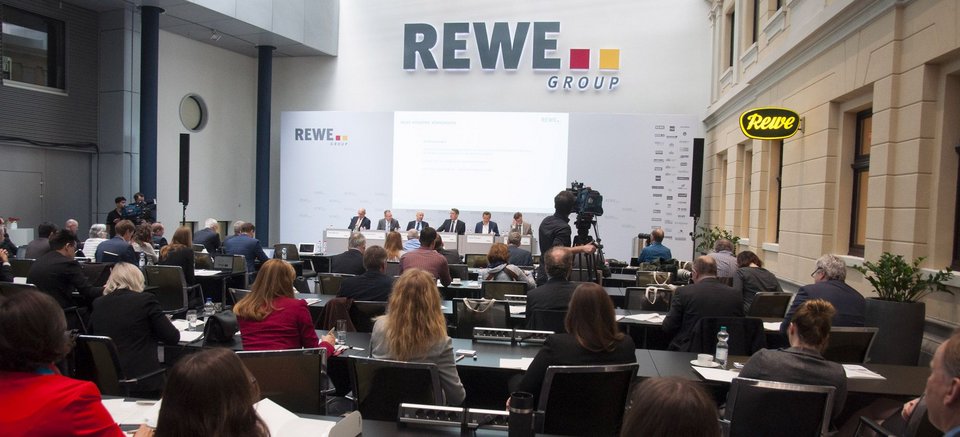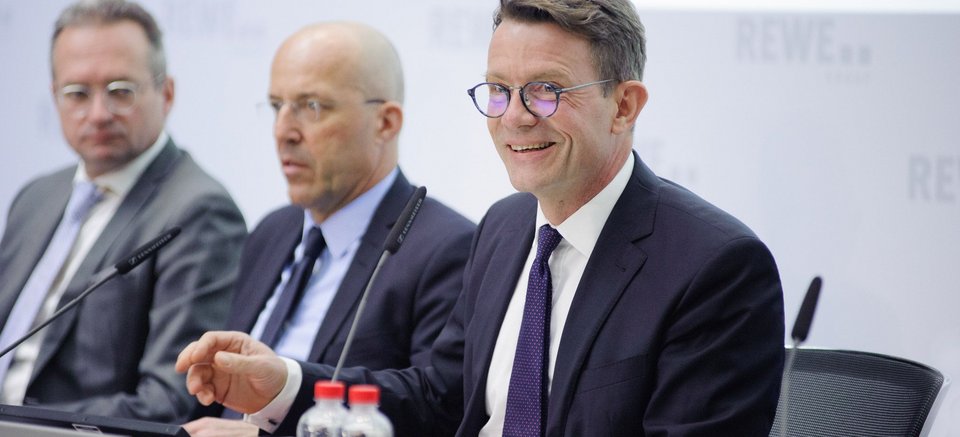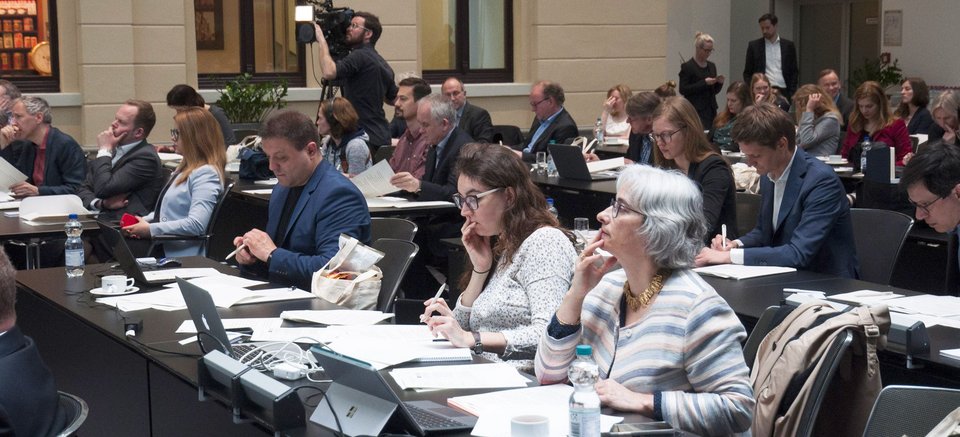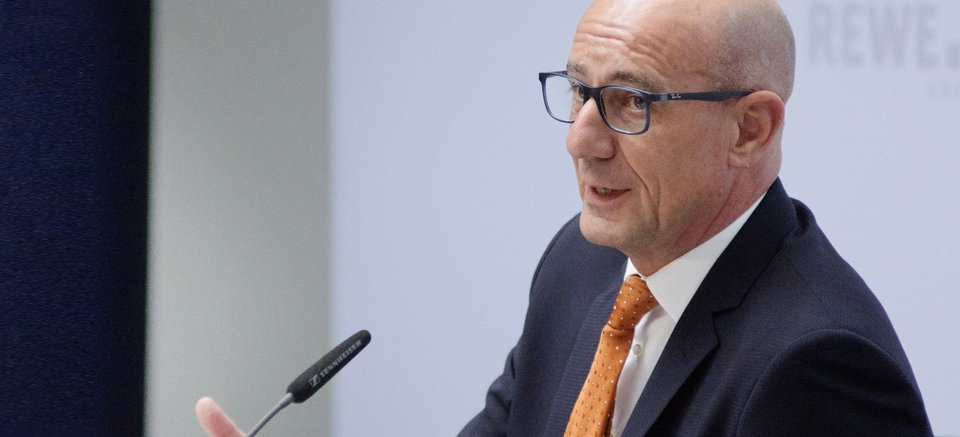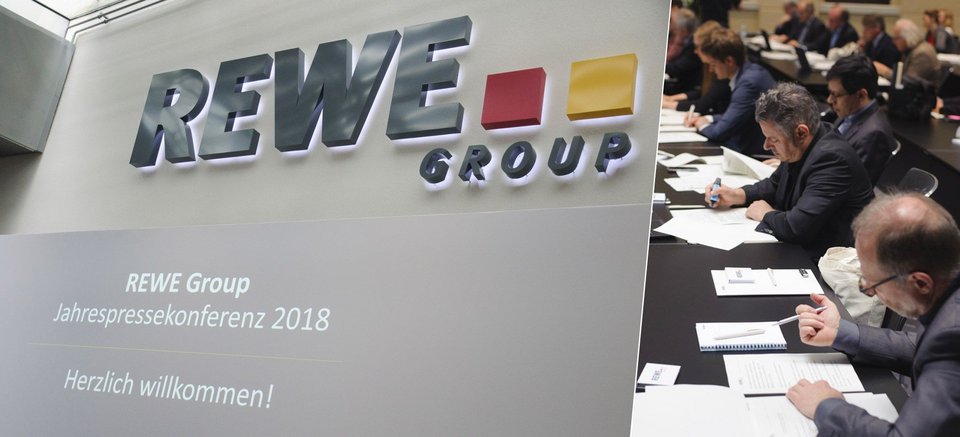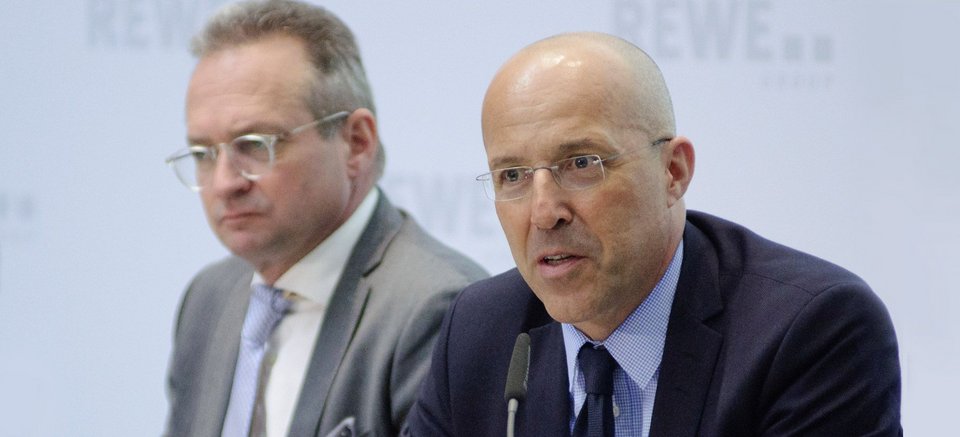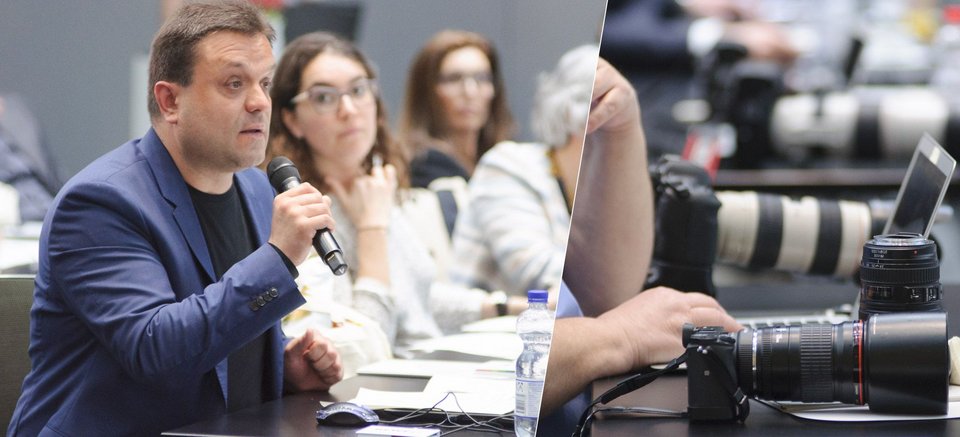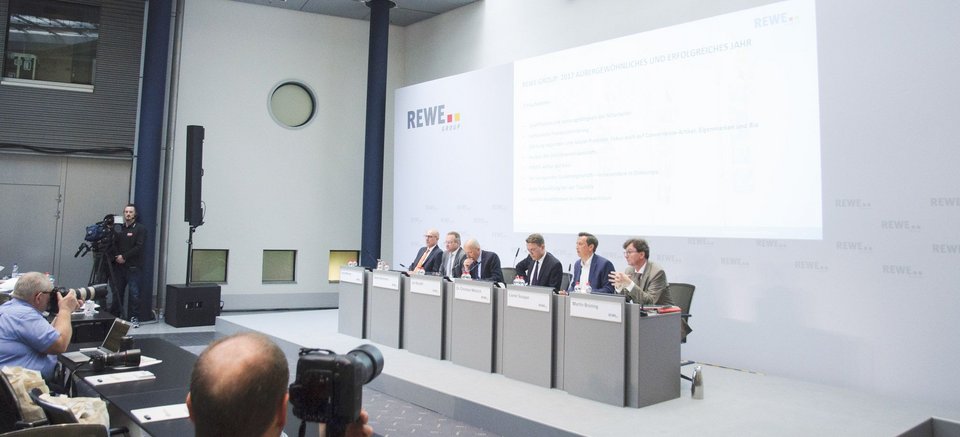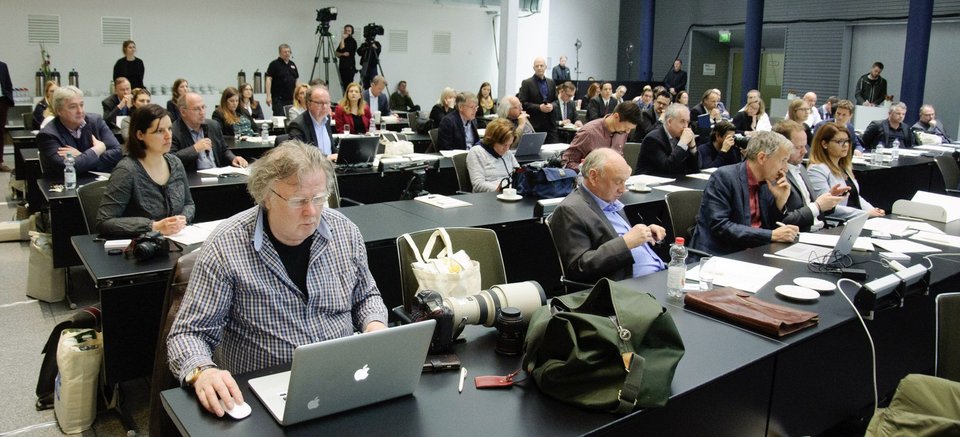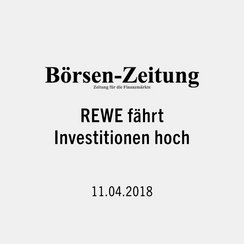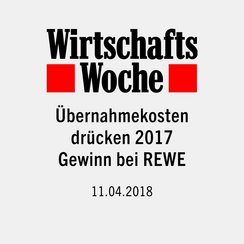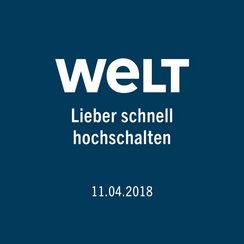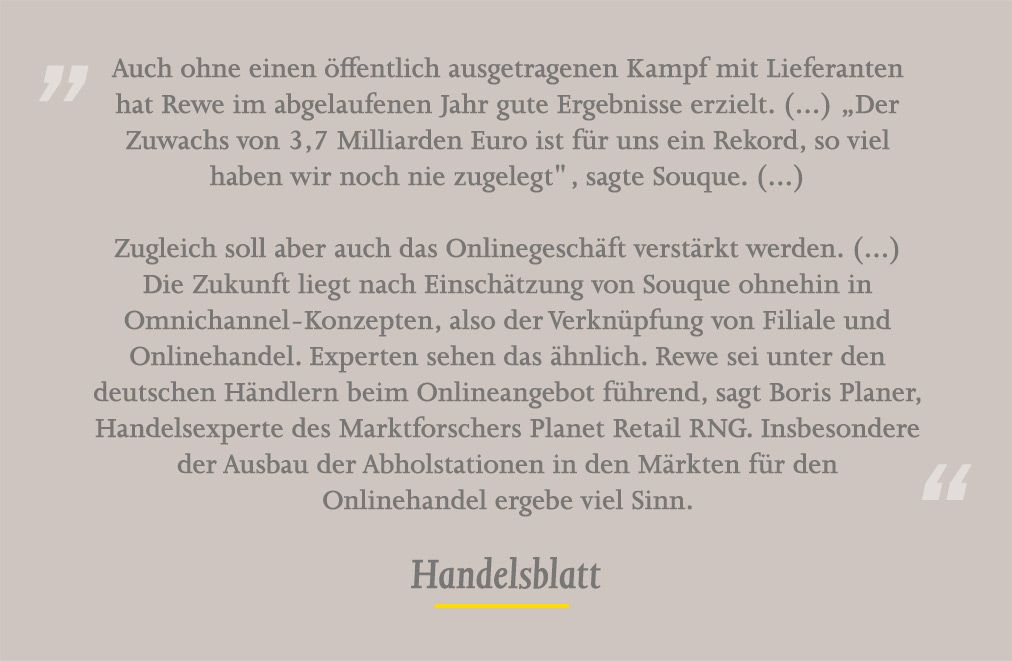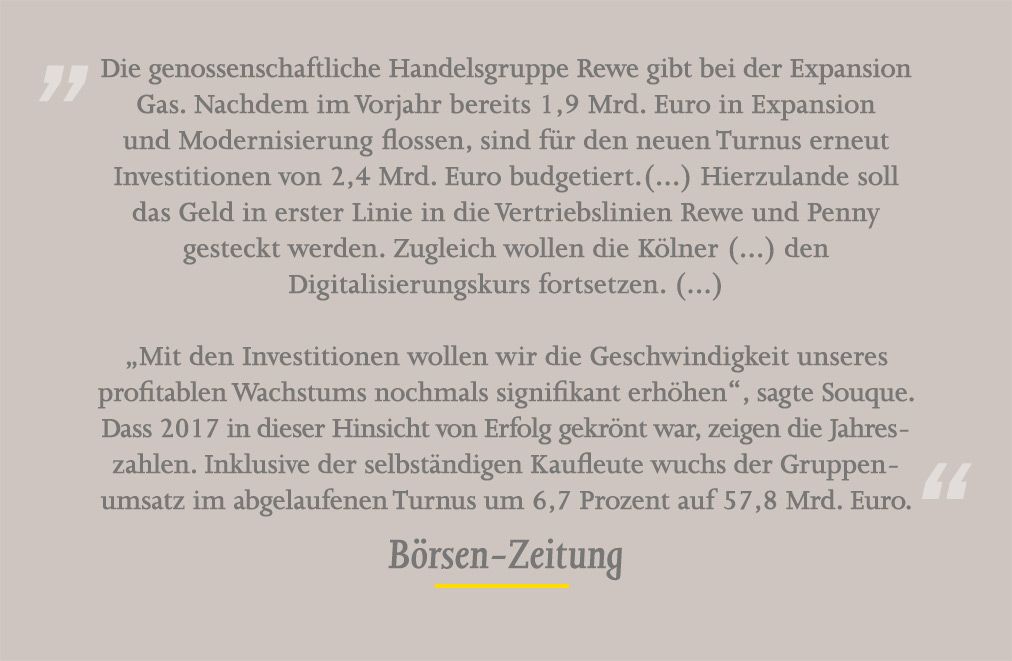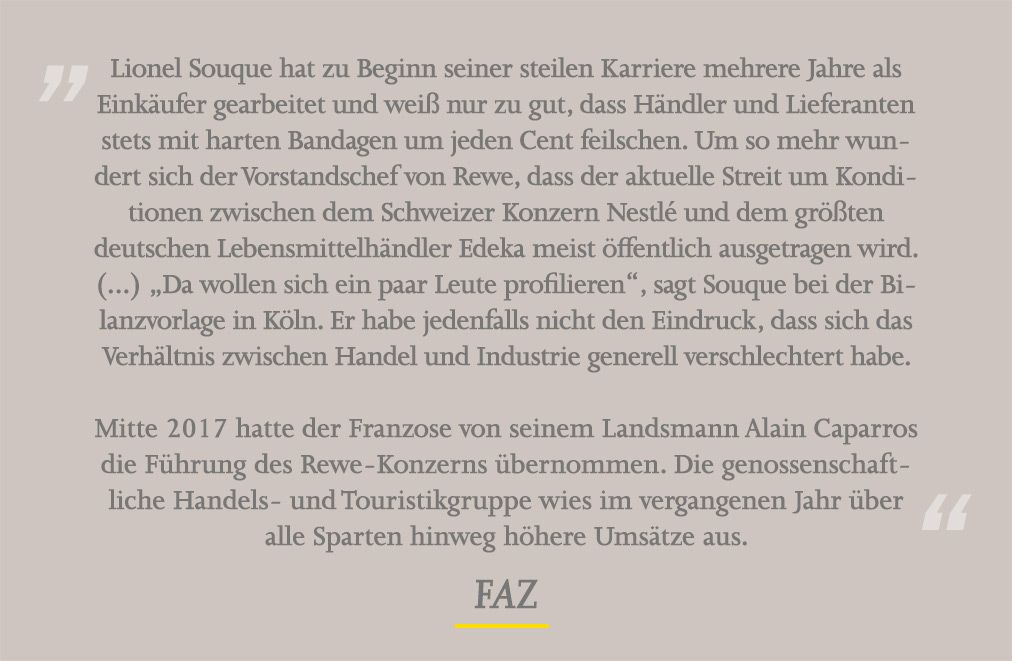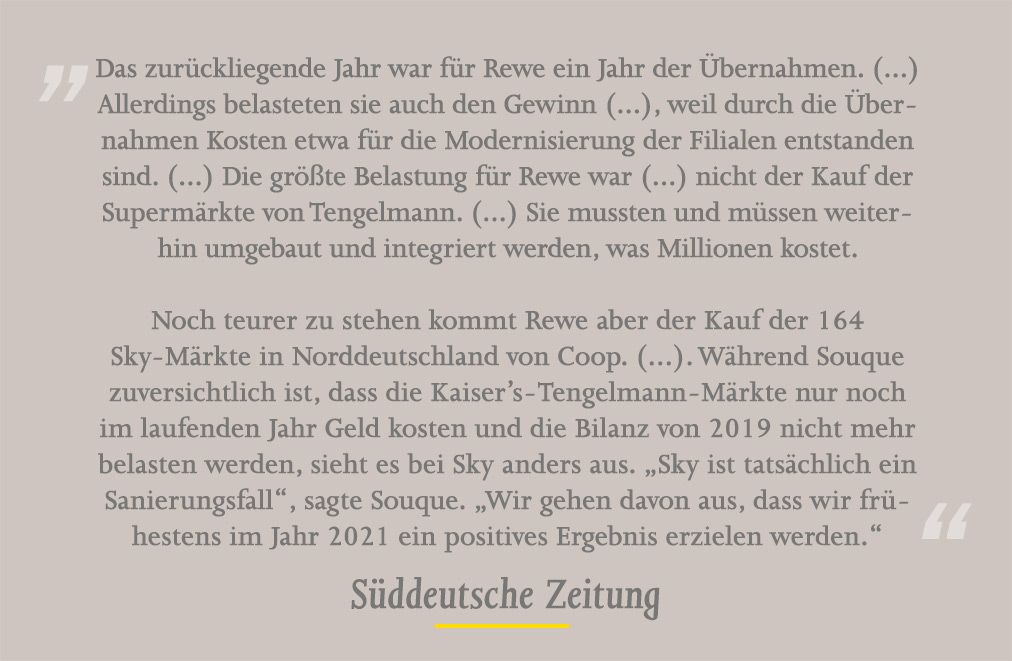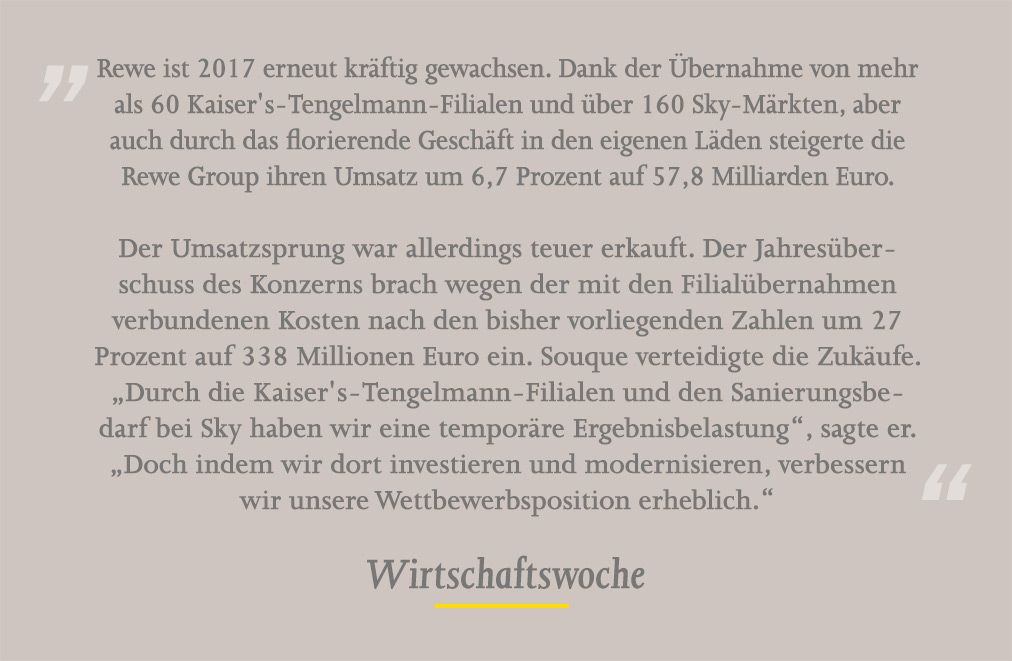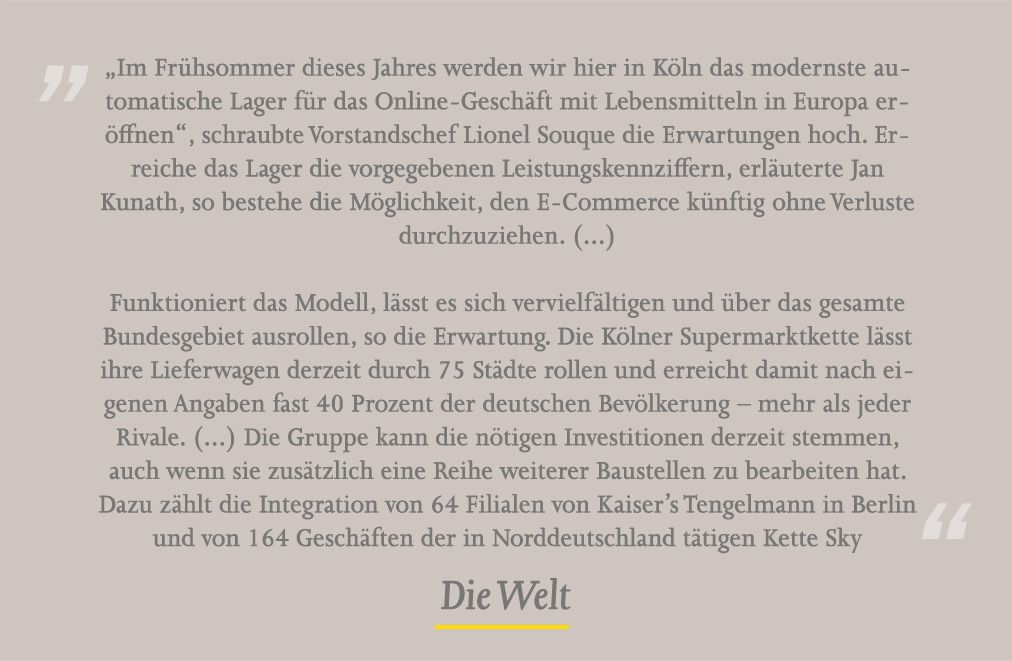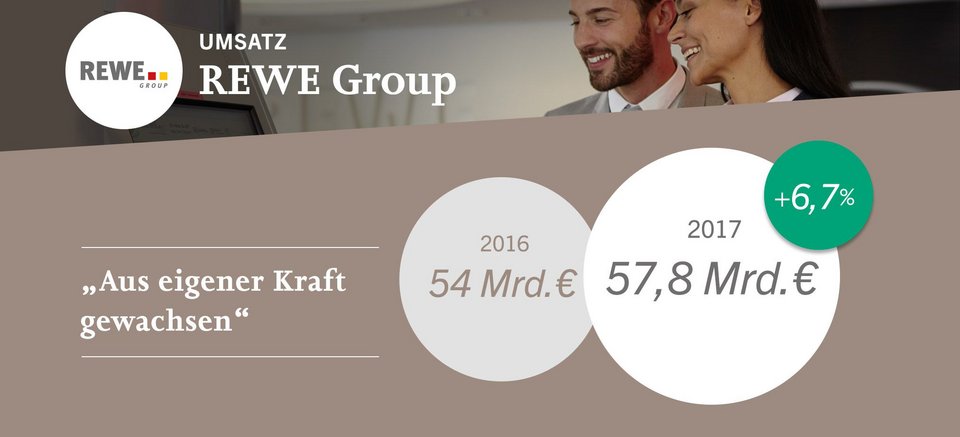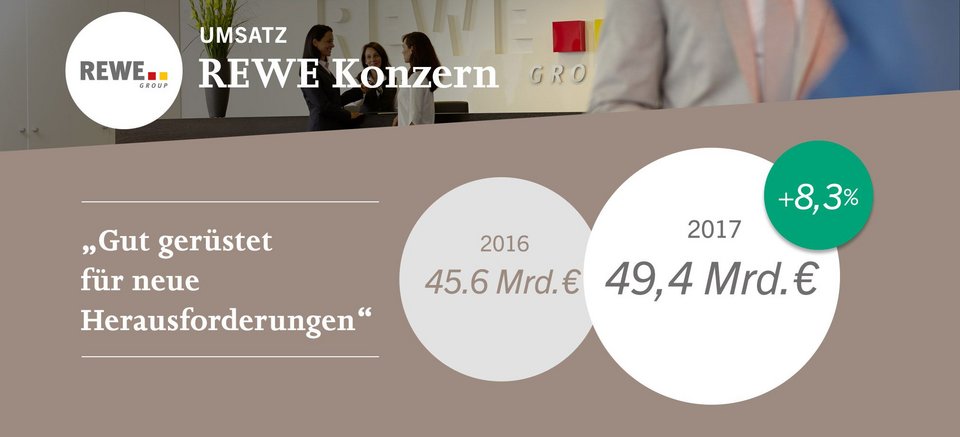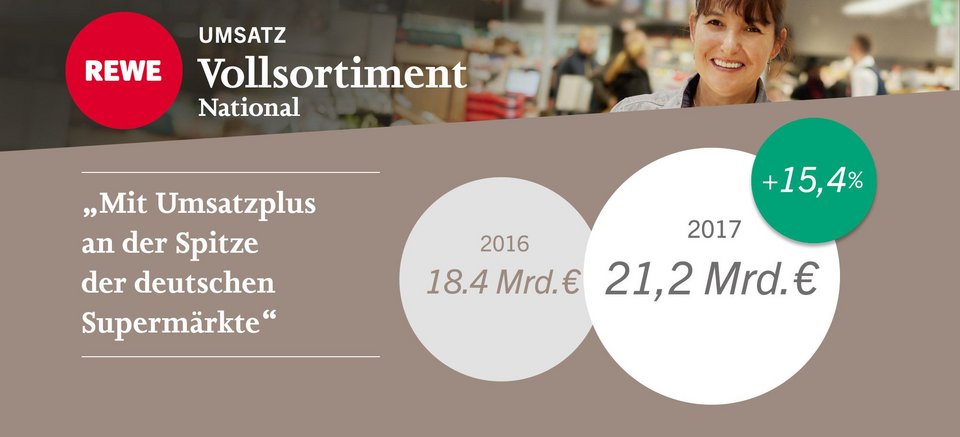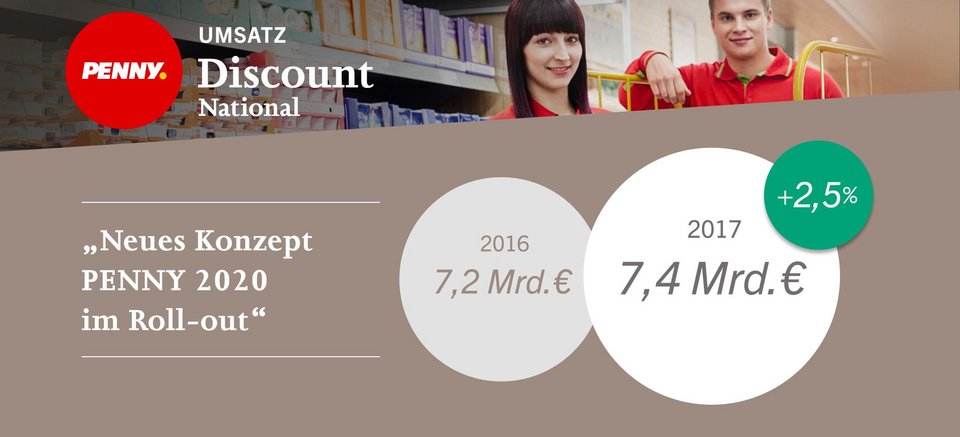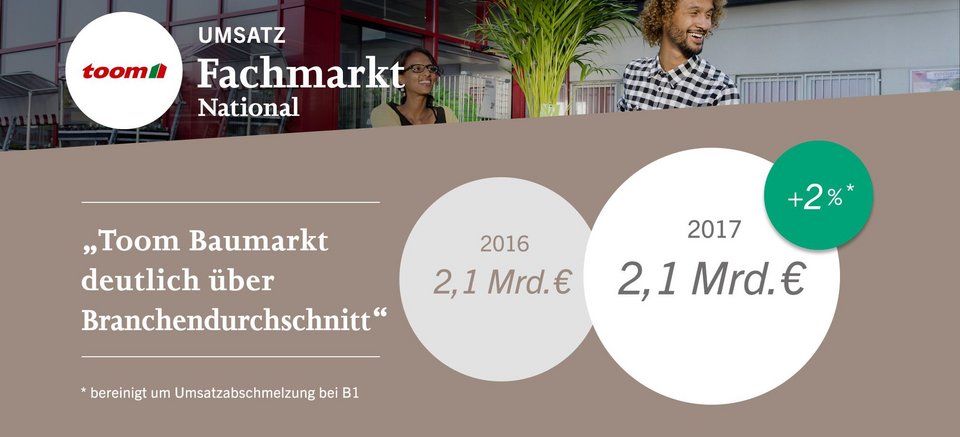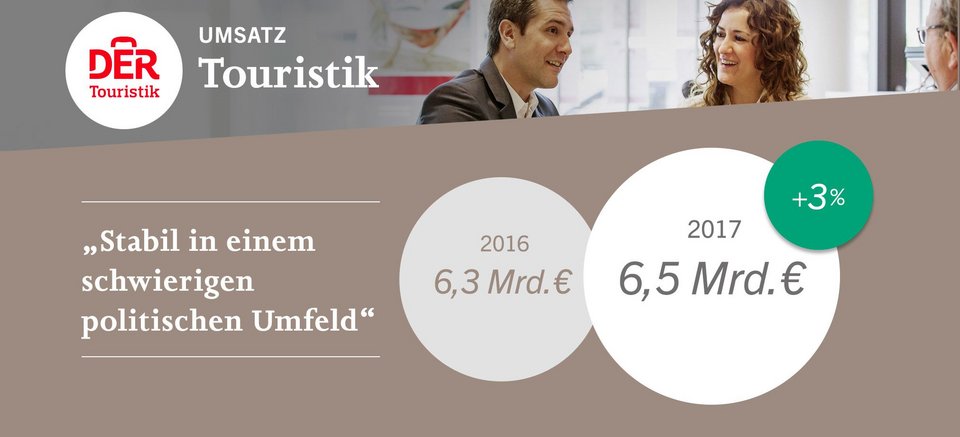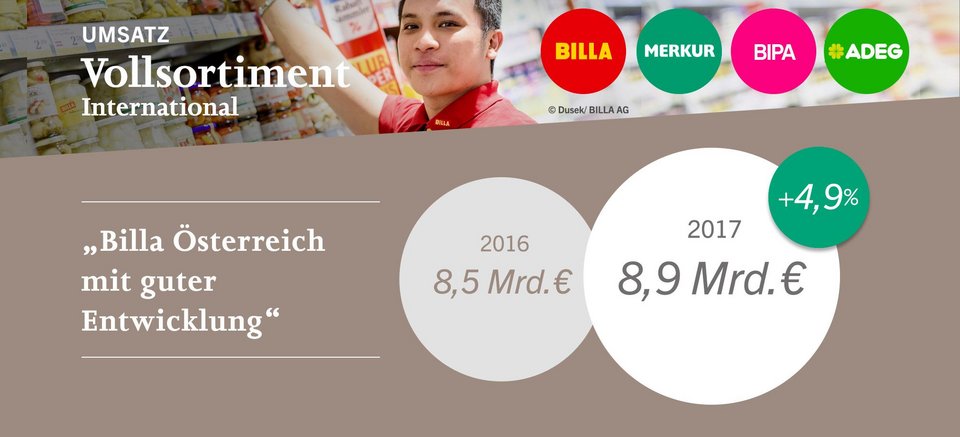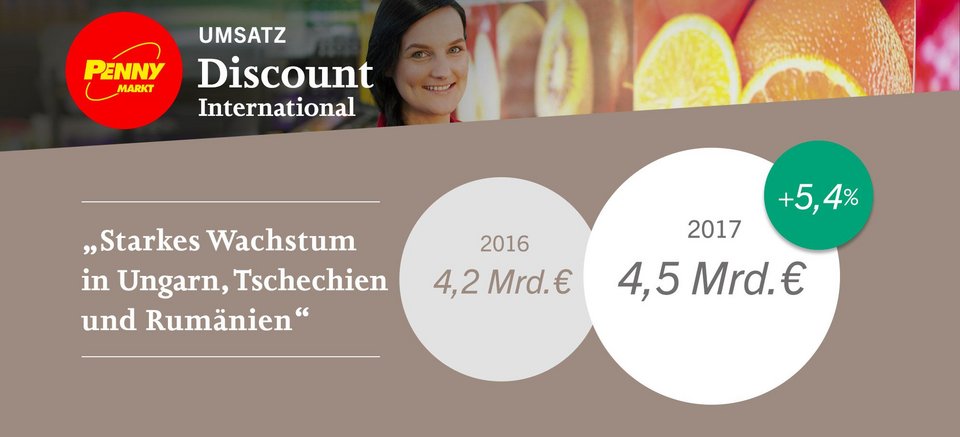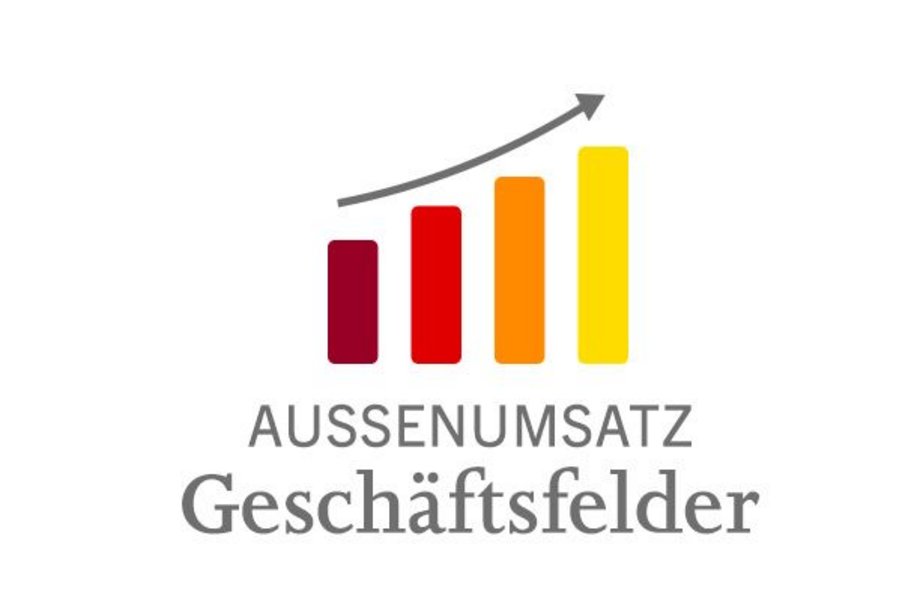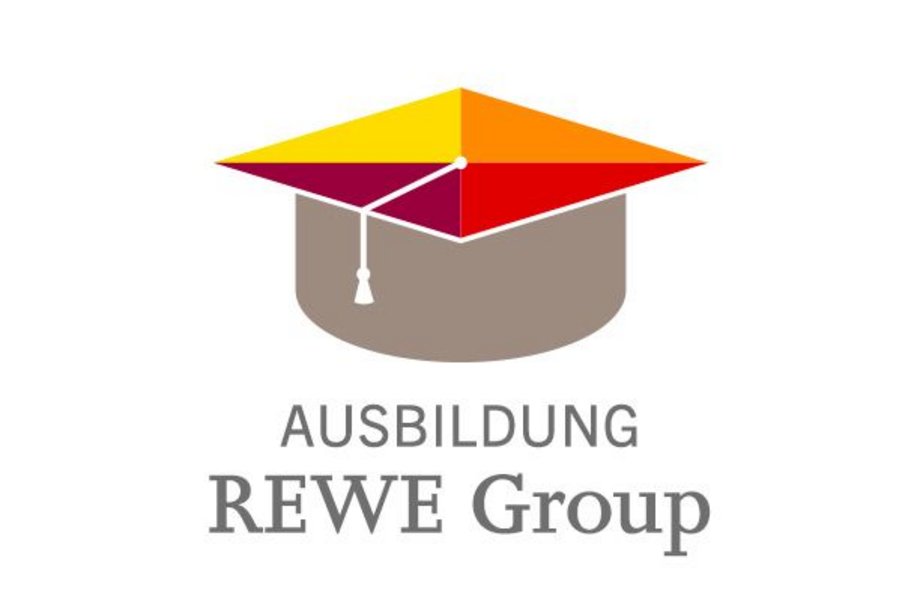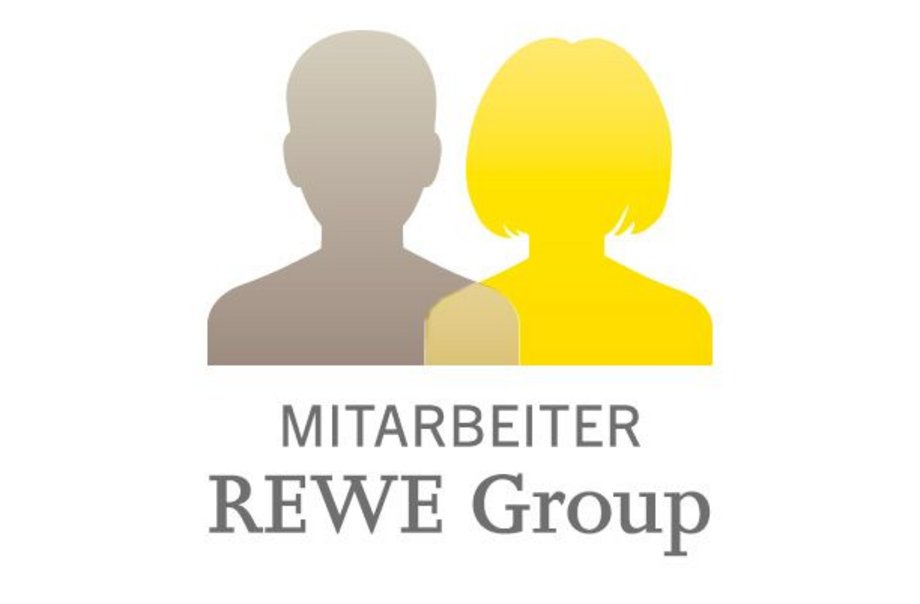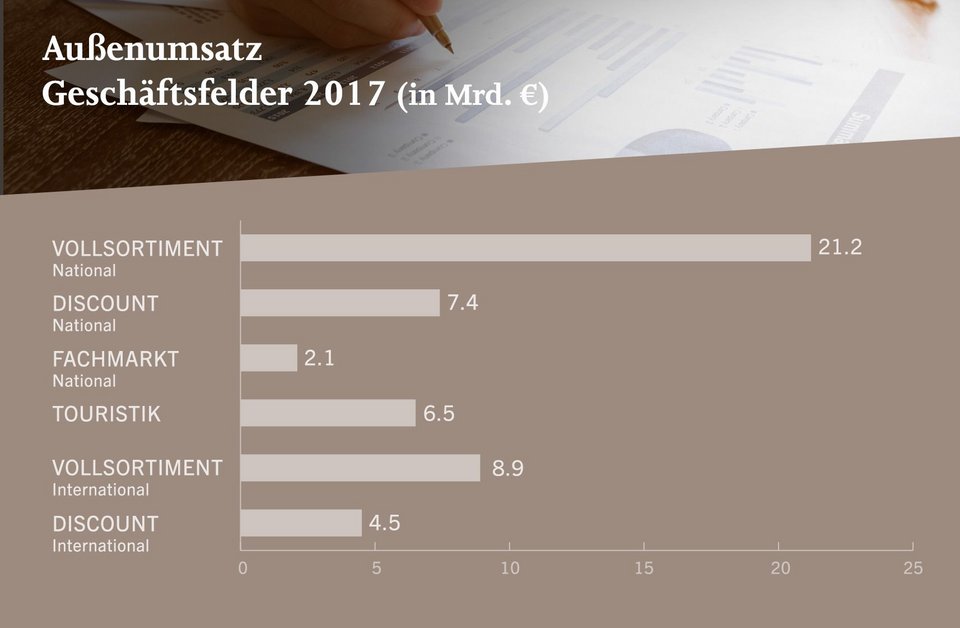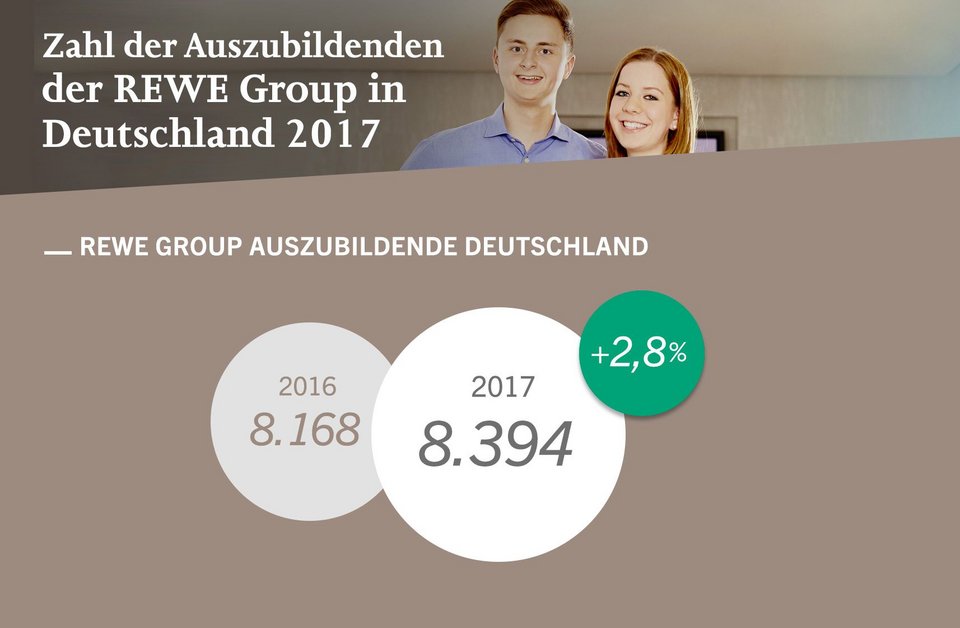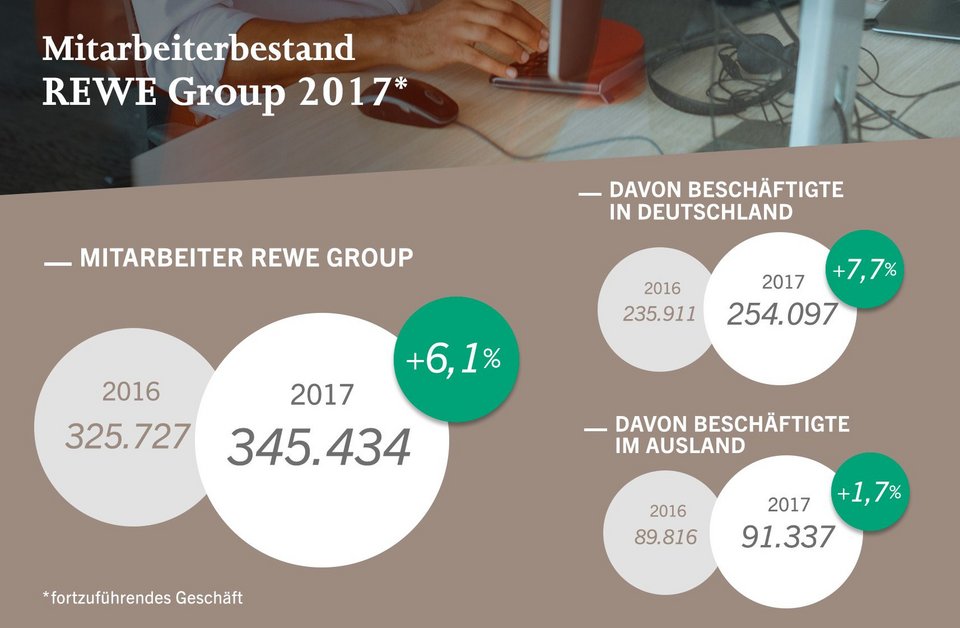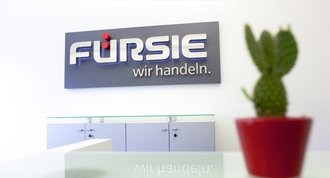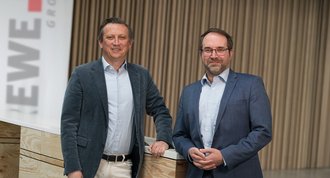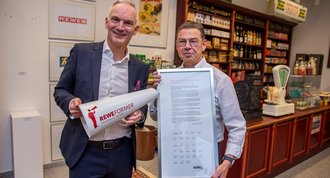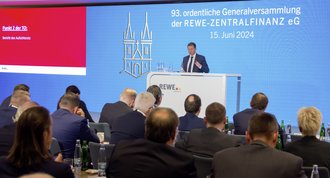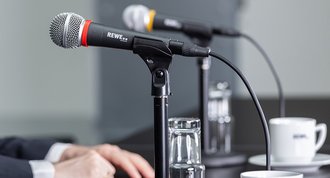Die REWE Group hat im Geschäftsjahr 2017 beim Umsatz in allen Geschäftsfeldern im In- und Ausland kräftig zugelegt. Alle Zahlen, Infos und Bilder jetzt in one.
// English version below //
Der Gesamtaußenumsatz wuchs um 6,7 Prozent auf 57,8 Milliarden Euro. Zum dynamischen Wachstum der Gruppe trug das Geschäft in Deutschland mit einem Umsatzplus von 7,1 Prozent bei.
Im Ausland wurde der Umsatz um 5,7 Prozent gesteigert. Der Auslandsanteil am Gesamtaußenumsatz der REWE Group verringerte sich dadurch leicht um -0,3 Prozentpunkte auf 27,7 Prozent; Deutschland: +0,3 Prozentpunkte, auf 72,3 Prozent. Die Zahl der Märkte stieg insgesamt um 3,7 Prozent auf 15.313.
Lionel Souque, Vorstandsvorsitzender der REWE Group, sagte bei der Vorstellung der noch nicht testierten Geschäftszahlen am 10. April 2018 in Köln: „2017 war ein außergewöhnliches und erfolgreiches Jahr für unser Unternehmen, weil unsere genossenschaftliche Gruppe insgesamt sehr kräftig um 3,7 Milliarden Euro gewachsen ist.
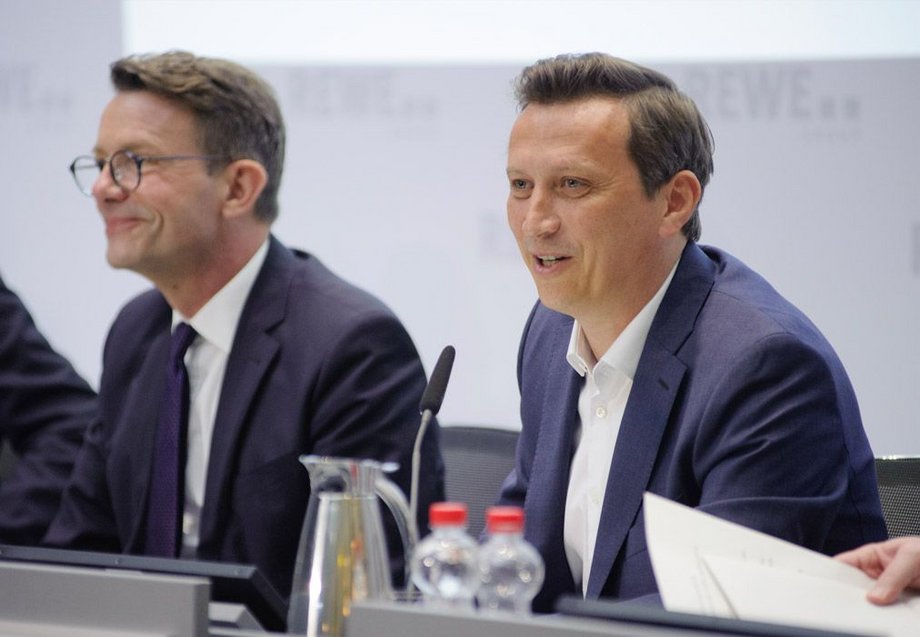 Lionel Souque, Vorstandsvorsitzender der REWE Group (rechts), und Vorstand Christian Mielsch / Foto: Achim Bachhausen
Dies ist eine Rekordsumme beim Umsatzwachstum. Erfreulich ist insbesondere, dass wir nicht nur durch die Übernahme von Kaiser’sTengelmann-Filialen in Berlin, Bayern und Nordrhein-Westfalen, durch die Gründung der Supermärkte Nord Vertriebs GmbH & Co. KG (SuNo) mit ihren Sky-Märkten sowie durch die Konsolidierung des neu gegründeten Joint Ventures mit der REWE Dortmund eG dieses Umsatzplus erzielt haben, sondern sehr kräftig organisch aus eigener Kraft gewachsen sind.
Lionel Souque, Vorstandsvorsitzender der REWE Group (rechts), und Vorstand Christian Mielsch / Foto: Achim Bachhausen
Dies ist eine Rekordsumme beim Umsatzwachstum. Erfreulich ist insbesondere, dass wir nicht nur durch die Übernahme von Kaiser’sTengelmann-Filialen in Berlin, Bayern und Nordrhein-Westfalen, durch die Gründung der Supermärkte Nord Vertriebs GmbH & Co. KG (SuNo) mit ihren Sky-Märkten sowie durch die Konsolidierung des neu gegründeten Joint Ventures mit der REWE Dortmund eG dieses Umsatzplus erzielt haben, sondern sehr kräftig organisch aus eigener Kraft gewachsen sind.
Den Mitschnitt der kompletten Pressekonferenz finden Sie auf dem youtube-Kanal der REWE Group.
Im hart umkämpften deutschen Lebensmitteleinzelhandelsmarkt hat REWE auch ohne die übernommenen Filialen das stärkste Umsatzwachstum der Supermarkt-Branche erwirtschaftet. PENNY hat sein Umsatzwachstum des Jahres 2016 noch weiter verbessern können. Ebenso hat sich unser Auslandsgeschäft insbesondere in Mittel- und Osteuropa hervorragend entwickelt. Nicht zuletzt vor dem Hintergrund der guten Entwicklungen bei toom Baumarkt und in unserer Touristik-Sparte bin ich sehr zufrieden mit der Gesamtentwicklung der REWE Group – eine Entwicklung, die vor allem auch der großen Leistung und dem Engagement unserer Mitarbeiterinnen und Mitarbeiter zu verdanken ist. Im harten Wettbewerb des Handels und der Touristik machen sie den entscheidenden Vorteil für uns aus.
Wir ernten hier weiterhin die Früchte unseres konsequenten Kurses der Expansion, Modernisierung und Innovation, die auch zukünftig die tragenden Säulen unserer Strategie des profitablen Wachstums sein werden. Unser Ziel ist es, immer und überall die beste Leistung für unsere Kunden zu erbringen. Dazu zählt auch unser Engagement im Bereich Nachhaltigkeit und gesunde Ernährung. Im Jahr 2018 werden wir deshalb unter anderem den Zucker- und Salzgehalt bei rund 200 Eigenmarkenprodukten signifikant verringern.“
„Unsere REWE Kaufleute-Märkte sind ein wichtiger Treiber unseres Wachstums.“ Lionel Souque, Vorstandsvorsitzender REWE Group
Zufrieden äußerte sich Souque zugleich über die Entwicklung des selbstständigen Lebensmitteleinzelhandels unter dem Dach der REWE Group. Die REWE-Partnerkaufleute erzielten 2017 ein Umsatzwachstum von 8,5 Prozent. „Unsere REWE Kaufleute-Märkte sind ein wichtiger Treiber unseres Wachstums. Die Förderung des selbstständigen Einzelhandels ist nicht nur Teil unseres genossenschaftlichen Auftrags, sondern trägt in entscheidender Weise zur positiven wirtschaftlichen Entwicklung des gesamten Unternehmens bei.“
Die gute Entwicklung aller Geschäftsbereiche der REWE Group hat in den Medien ein positives Echo hervorgerufen. Eine Auswahl aus den Pressestimmen zur Jahres-Pressekonferenz finden Sie hier in der Slideshow zum Durchklicken:
Die Zahl der Beschäftigten in Deutschland und dem europäischen Ausland stieg um 6,1 Prozent auf 345.434 (fortzuführendes Geschäft). In Deutschland erhöhte sich 2017 die Beschäftigtenzahl von 235.897 um 7,7 Prozent auf 254.097. Die Zahl der Beschäftigten im Ausland stieg um 1,7 Prozent auf 91.337.
Im Vergleich zu 2016 (Stichtag: 30.09.) steigerte der Kölner Handels- und Touristikkonzern im vergangenen Jahr die Anzahl der Auszubildenden um 2,8 Prozent von 8.168 auf 8.394 (Stichtag: 30.09.).
Der Umsatz des REWE-Konzerns aus fortzuführendem Geschäft stieg im vergangenen Jahr um 8,3 Prozent von 45,6 Milliarden Euro auf 49,4 Milliarden Euro. In Deutschland wuchs der REWE-Konzern um 9,5 Prozent und im Ausland um 5,7 Prozent.
Ohne die Sondereffekte der Übernahme von Kaiser’s Tengelmann-Filialen, von SuNo und durch die Konsolidierung des Joint Ventures mit der REWE Dortmund betrug das Umsatzwachstum 4,4 Prozent.
Das unbereinigte operative Ergebnis aus fortzuführendem Geschäft lag bei 491 Millionen Euro. Vor den genannten Sondereffekten im Geschäftsjahr 2017 betrug das EBITA des REWE-Konzerns 594 Millionen Euro und lag damit um rund 20 Millionen Euro über dem ebenfalls um Sondereffekte bereinigten Vorjahreswert von 574 Millionen Euro (unbereinigter Vorjahreswert: 997 Millionen Euro).
Im EBITA des REWE-Konzerns nicht enthalten ist das operative Ergebnis der REWE-Partnerkaufleute unter dem Dach der Kölner REWE, das sich auf rund 290 Millionen belief und damit das hohe Niveau des Vorjahres erreichte.
Der Jahresüberschuss des REWE-Konzerns liegt 2017 voraussichtlich bei 338 Millionen Euro. Die Differenz zum Vorjahr geht ausschließlich auf die genannten Sondereffekte zurück.
Das REWE-Konzernergebnis vor Zinsen, Steuern und Abschreibungen auf Anlagevermögen und Firmenwerte (EBITDA) erhöhte sich gegenüber dem vergleichbaren Vorjahreswert (ohne einmalige Sondereffekte im Geschäftsjahr 2016) von 1,53 Milliarden Euro auf 1,65 Milliarden Euro.
Die cash-wirksamen Investitionen in Sachanlagen und immaterielle Vermögenswerte des Jahres 2017 lagen mit 1,9 Milliarden Euro deutlich über dem hohen Niveau des Vorjahres.
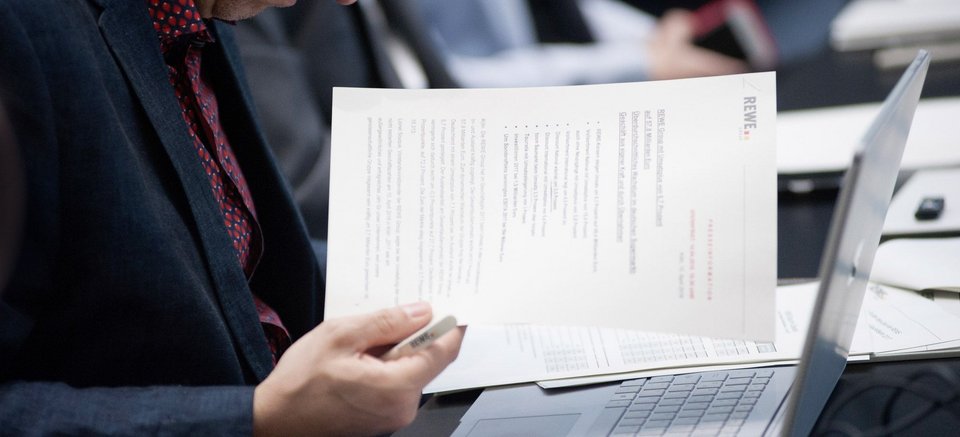
Das Eigenkapital erreichte 2017 mit 6,2 Milliarden Euro einen neuen Höchststand. Die Eigenkapitalquote betrug 31,7 Prozent. Die Nettofinanzverschuldung ohne Finanzierungsleasing lag zum Stichtag 31.12.2017 bei 752 Millionen Euro und bleibt damit auf niedrigem Niveau.
Souque bekräftigte, dass der REWE-Konzern im laufenden Geschäftsjahr seine Investitionstätigkeit weiter forcieren wird: „Wir werden 2018 die Investitionen auf 2,4 Milliarden Euro erhöhen. Schwerpunkte der Investitionstätigkeit sind die Expansion und Modernisierung unserer Vertriebsnetze, der Erwerb von Immobilien, Technologie, Logistik und die Qualifikation unserer Mitarbeiterinnen und Mitarbeiter. In Deutschland werden wir rund 1,5 Milliarden Euro investieren, im europäischen Ausland rund 900 Millionen Euro.“
Weiter erklärte Souque: „Wir sehen uns gut gerüstet für die vor uns liegenden Herausforderungen. Durch die Kaiser’sTengelmann-Filialen und den Sanierungsbedarf bei Sky haben wir eine temporäre Ergebnisbelastung. Doch indem wir dort investieren und modernisieren, verbessern wir unsere Wettbewerbsposition erheblich. Diesen Weg werden wir fortsetzen. Mit Konzepten wie REWE 2020 und PENNY 2020 in Deutschland stärken wir unser stationäres Geschäft. Gleichzeitig setzen wir unseren Digitalisierungskurs fort und optimieren unsere Omnichannel-Konzepte. Mit unseren hohen Investitionen, die wir auch über 2018 hinaus geplant haben, wollen wir die Geschwindigkeit unseres profitablen Umsatzwachstums nochmals signifikant erhöhen.“
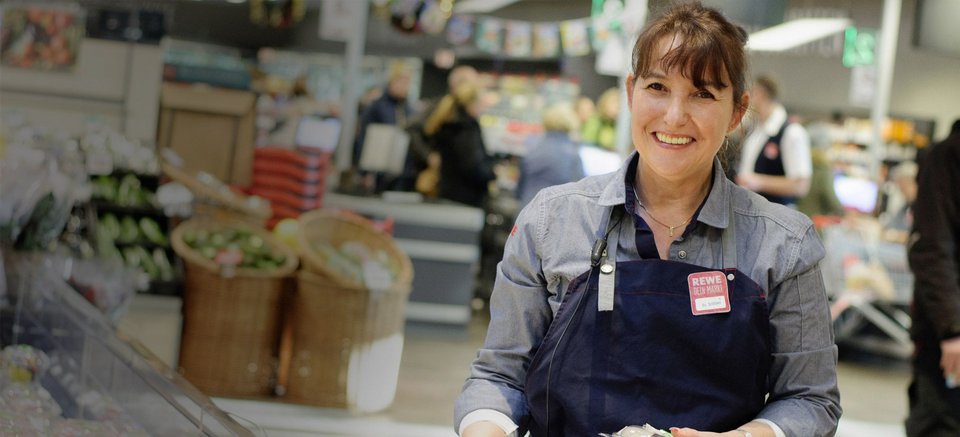
Geschäftsfeld Vollsortiment National
Das Vollsortiment National mit REWE, REWE Center, REWE City, REWE To Go sowie Nahkauf und sonstigen Großhandelspartnern erzielte 2017 ein Umsatzplus von 15,4 Prozent auf 21,2 Milliarden Euro. Bereinigt um die Neuzugänge Sky, Kaiser’sTengelmann-Filialen und das Joint Venture mit der REWE Dortmund betrug das Plus 5,8 Prozent. Damit führte REWE laut der Konsumforscher der GfK und von TradeDimensions auch in diesem Jahr wieder das Wachstum bei den deutschen Supermärkten an.
Wesentliche Faktoren für den Erfolg von REWE waren unter anderem die weiter verbesserte Preispositionierung, die Stärkung von regionalen und lokalen Produkten, von Convenience- und Bio-Produkten im Sortiment sowie der Eigenmarken. Durch die kontinuierliche Weiterqualifizierung der Mitarbeiter sowie zusätzliche Mitarbeiter im Markt konnte zudem die Service-Wahrnehmung der Kunden nochmals verbessert werden.
Mit Erfolg entwickelte sich zudem das innovative Konzept REWE To Go. In Kooperation mit ARAL konnte die Zahl der Tankstellen mit REWE To Go im Jahr 2017 von 60 auf 236 erhöht werden.
Weiterhin voll auf Kurs liegt die Entwicklung der REWE Omnichannel-Aktivitäten. Der REWE Lieferservice ist derzeit in 75 Städten verfügbar und deckt mit seinem Angebot rund 40 Prozent der Bevölkerung in Deutschland ab. Damit ist REWE aktuell Deutschlands Nr.1 Online-Supermarkt für frische Lebensmittel. Ergänzt wird dieses Angebot durch den REWE Abholservice, der aktuell an 67 Standorten verfügbar ist, sowie durch den bundesweiten REWE Paketservice für Partnerprodukte.

Geschäftsfeld Vollsortiment International
Im Vollsortiment International sind die Supermarkt- und Drogeriemarkt-Aktivitäten in Österreich, Tschechien, der Slowakei, Russland, Bulgarien, Kroatien und der Ukraine zusammengefasst.
Der Umsatz stieg um 4,9 Prozent (wechselkursbereinigt um 3,8 Prozent) von 8,5 auf 8,9 Milliarden Euro.
Der Umsatz im Vollsortiment Österreich mit BILLA, BIPA, MERKUR und ADEG stieg um 1,4 Prozent auf 6,3 Milliarden Euro. Die Supermärkte wuchsen um 1,9 Prozent, während die BIPA-Drogeriemärkte 4,7 Prozent beim Umsatz einbüßten. Ursächlich dafür waren Bereinigungen des Filialportfolios sowie gezielte Investitionen in die Preise.
In Mittel- und Osteuropa erwirtschaftete BILLA einen Umsatzzuwachs von 14,5 Prozent (wechselkursbereinigt +10,4 Prozent) auf 2,6 Milliarden Euro. Das stärkste Wachstum erreichte dabei BILLA Tschechien mit +15,9 Prozent (wechselkursbereinigt +12,9 Prozent).
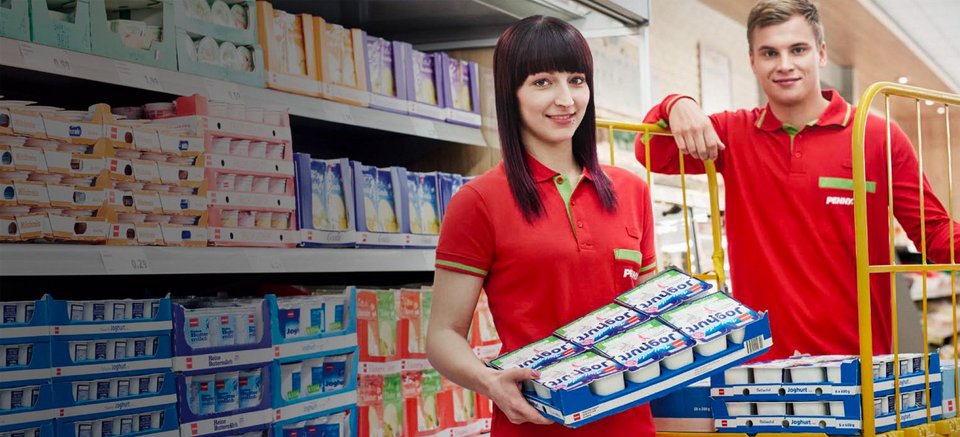
Geschäftsfeld Discount National
PENNY Deutschland erwirtschaftete ein Umsatzplus von 2,5 Prozent auf 7,4 Milliarden Euro. Im zweiten Jahr in Folge stieg auch wieder die Zahl der PENNY-Filialen in Deutschland – um 1,2 Prozent von 2.148 auf 2.174.
Zugleich setzte PENNY in Deutschland den Rollout seines Konzepts PENNY 2020 fort. 850 Filialen wurden im vergangenen Jahr entsprechend umgebaut und damit unter anderem die Frischeleistung durch die Erweiterung von Kühlflächen erhöht und die Convenience-Eigenmarken penny to go und penny heat&eat ausgebaut.
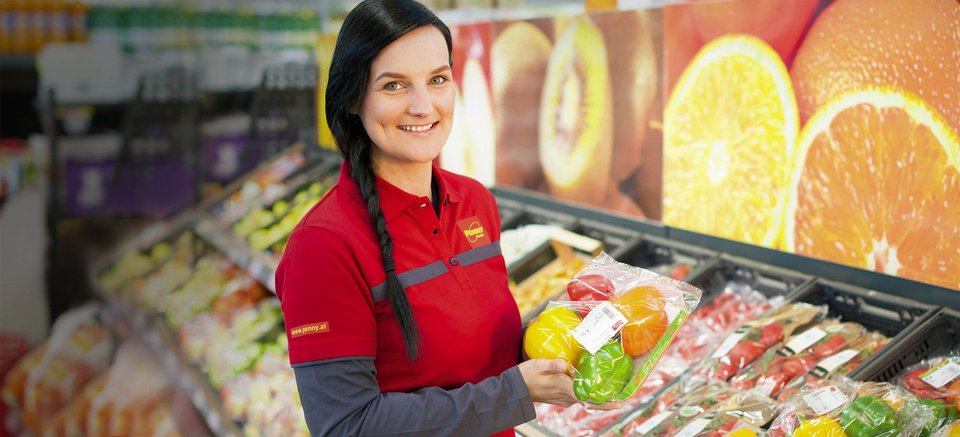
Geschäftsfeld Discount International
In den Ländern Italien, Österreich, Ungarn, Rumänien und Tschechien erwirtschaftete PENNY International einen Umsatz von 4,5 Milliarden Euro. Gegenüber dem Vorjahr bedeutet das ein Umsatzplus von 5,4 Prozent (wechselkursbereinigt +4,8 Prozent).
Die umsatzstärksten Länder sind Tschechien (1,3 Mrd. Euro), Italien (1,1 Mrd. Euro) und Österreich (785 Mio. Euro). Die stärkste Umsatzentwicklung verzeichnete PENNY International mit 12,2 Prozent in Ungarn (wechselkursbereinigt +11,4 Prozent).
Es folgen Tschechien mit einem Umsatzplus von 9,2 Prozent (wechselkursbereinigt +6,3 Prozent) und Rumänien mit +6,9 Prozent Umsatzzuwachs (wechselkursbereinigt +8,8 Prozent).
Im hart umkämpften Markt in Österreich konnte PENNY den Umsatz des Vorjahres mit einem leichten Plus von 0,7 Prozent halten.

Geschäftsfeld Fachmarkt National
Der Geschäftsbereich Fachmarkt National umfasst die Baumarkt-Aktivitäten von toom Baumarkt und B1 Discount Baumarkt. Die Filialen von toom Baumarkt erwirtschafteten 2017 ein Umsatzplus von 2,5 Prozent auf 1,9 Milliarden Euro. Mit diesem Wachstum liegt toom Baumarkt deutlich über dem vom Branchenverband BHB ermittelten Gesamtumsatzwachstum von 1,1 Prozent im deutschen Baumarkthandel. Angesichts einer Umsatzabschmelzung von rund 12 Millionen Euro bei B1 ergibt sich für das Geschäftsfeld Fachmarkt National insgesamt ein Umsatzplus von 2 Prozent auf 2,1 Milliarden Euro.

Geschäftsfeld Touristik
Die DER Touristik als Reisesparte der REWE Group hat sich 2017 mit einem Plus beim fakturierten Umsatz von 3 Prozent auf 6,5 Milliarden Euro weiter positiv entwickelt.
Der Internationalisierungskurs der DER Touristik von einem deutschen Reiseanbieter hin zu einem europäischen Reisekonzern – mit Akquise von Exim Tours in Osteuropa im Jahr 2012 und der europäischen Reiseveranstalter, Spezialisten und Stores von Kuoni im Jahr 2015 – hat sich im zurückliegenden Geschäftsjahr sehr positiv ausgewirkt. 2017 konnten insbesondere die Unternehmen in den Quellmärkten in Ost- und in Nordeuropa beim Umsatz deutlich zulegen. Auch die Zielgebietsagenturen wachsen deutlich. Besonders erfolgreich mit Rekordumsätzen und -ergebnissen war wieder der deutsche Reisevertrieb, der gerade in Zeiten einer wahrgenommenen wachsenden Unsicherheit in einigen Zielmärkten eine immer größere Bedeutung bekommt.
Vorstandsvorsitzender Lionel Souque zum Geschäftsjahr 2017
Finanzvorstand Dr. Christian Mielsch zu den Ergebnissen des REWE-Konzerns
Dr. Christian Mielsch zu der Umsatzentwicklung in den Geschäftsfeldern
Lionel Souque mit einem Ausblick auf das laufende Geschäftsjahr 2018
Jan Kunath zu Omnichannel und REWE-Lieferservice
Telerik Schischmanow zu Immobilien
Frank Wiemer zur Entwicklung von toom Baumarkt
» ENGLISH VERSION «

Above-average growth in German supermarket business through organic growth and takeovers
In the 2017 business year, REWE Group saw a strong increase in revenue in all business segments, both at home and abroad. Total external revenue grew by 6.7 per cent to 57.8 billion euros. Business in Germany contributed to the dynamic growth of the group with an increase in revenue of 7.1 per cent. Revenue abroad increased by 5.7 per cent. The foreign share of total external revenue of REWE Group thus decreased slightly by 0.3 percentage points to 27.7 per cent, while for Germany it increased by 0.3 percentage points to 72.3 per cent. The number of stores rose by 3.7 per cent overall to 15,313.
At the presentation of the not yet audited business figures in Cologne on 10 April 2018, Lionel Souque, CEO of REWE Group, said: “2017 was an exceptional and successful year for our company, as our cooperative group grew very strongly overall by 3.7 billion euros. This is a record amount in terms of revenue increase. What’s particularly gratifying is that we didn’t achieve this increase in revenue solely through the takeover of Kaiser’s Tengelmann branches in Berlin, Bavaria and North Rhine-Westphalia, through the founding of Supermärkte Nord Vertriebs GmbH & Co. KG (SuNo) with its Sky stores, and through the consolidation of the newly established joint venture with REWE Dortmund eG, rather the group also grew very strongly through organic growth. In the highly competitive German food retail sector, REWE achieved the strongest revenue increase in the supermarket sector, even without including the acquired branches. PENNY was able to improve further on its revenue increase achieved in 2016. Likewise, our foreign business has developed exceptionally well, particularly in Central and Eastern Europe. Not least against the background of good developments at toom Baumarkt DIY stores and in our Travel and Tourism division, I am very satisfied with the overall development of REWE Group, which is primarily due to the outstanding performance and commitment of our employees. Amidst tough competition for trade and tourism, they represent a decisive competitive advantage for us. We are still reaping the fruits of our consistent policy of expansion, modernisation and innovation, which will continue to be the cornerstones of our profitable growth strategy. Our goal is to provide the best service for our customers – everywhere and at all times. This includes our commitment to the areas of sustainability and healthy diets. Therefore, we will significantly reduce the amount of sugar and salt in around 200 of our store brand products in 2018.”
Souque also expressed his satisfaction with the development of the independent food retail business under the umbrella of REWE Group. In 2017, REWE partner retailers achieved a revenue increase of 8.5 per cent. “The stores of our REWE independent retailers are an important driver of our growth. The promotion of independent retail is not only part of our cooperative philosophy, it also contributes decisively to the positive economic development of the entire company.”
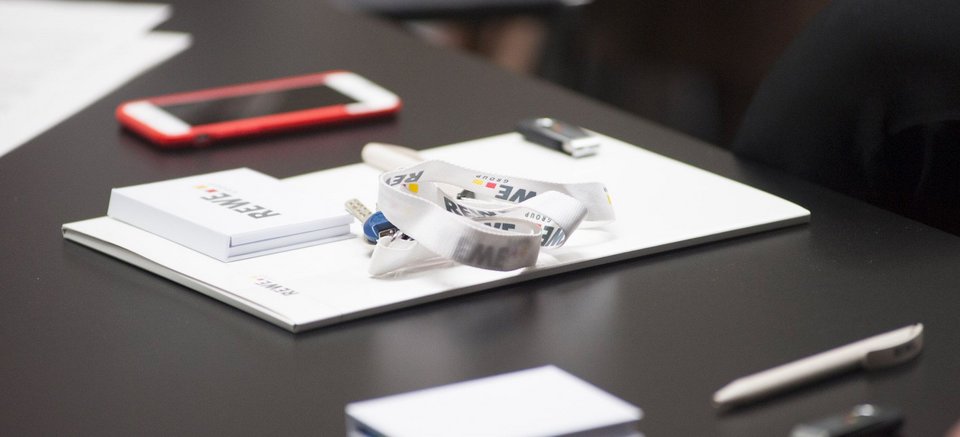
The revenue of REWE Combine from continuing operations rose last year by 8.3 per cent from 45.6 billion euros to 49.4 billion euros. In Germany, REWE Combine grew by 9.5 per cent and abroad by 5.7 per cent.
Excluding special items – the takeover of Kaiser’s Tengelmann branches, SuNo, and the consolidation of the joint venture with REWE Dortmund – there was a revenue increase of 4.4 per cent.
The unadjusted operating result from continuing operations totalled 491 million euros. Not including the aforementioned special items, the EBITA of REWE Combine was 594 million euros in the 2017 business year. It was therefore higher by around 20 million euros compared to the previous year’s figure – also adjusted for special items – of 574 million euros (unadjusted previous year’s figure: 997 million euros).
The EBITA of REWE Combine does not include the operating result of REWE partner retailers under the umbrella of the Cologne-based REWE, which amounted to around 290 million euros and thus reached the high level of the previous year.
The annual profit of REWE Combine is estimated to be 338 million euros for 2017. The difference to the previous year is solely due to the aforementioned special items.
REWE Combine’s earnings before interest, taxes, depreciation and amortisation (EBITDA) climbed from 1.53 billion euros to 1.64 billion euros compared with the previous year’s figure (excluding one-time special items in the 2016 business year).
Cash-effective investments in property and intangible assets made in 2017 totalled 1.9 billion euros, significantly above the high level of the previous year.
Equity reached a new high of 6.2 billion euros in 2017. The equity ratio amounted to 31.7 per cent. As of 31 December 2017, the net financial debt without finance leases totalled 752 million euros and therefore remains at a low level.
Souque confirmed that REWE Combine will continue to drive its investing activities in the current business year: “In 2018, we will increase investment to 2.4 billion euros. The focus of investing activities is on the expansion and modernisation of our sales networks, the acquisition of real estate, technology, logistics and training for our employees and management. We will invest around 1.5 billion euros in Germany and around 900 million euros in other European countries.”
Souque further stated: “We feel well equipped for the challenges ahead. Due to the takeover of the Kaiser’s Tengelmann branches and the need for renovation at Sky, we have a temporary charge against earnings. But by investing and modernising here, we are significantly improving our competitive position. We will continue on this path. We are strengthening our trade business in Germany with concepts such as REWE 2020 and PENNY 2020. At the same time, we will continue on our road towards digitalisation and optimise our omnichannel concepts. With our high investments, which we have also planned beyond 2018, we want to significantly increase the speed of our profitable revenue growth.”
National Full-Range Stores
National Full-Range Stores, with REWE, REWE Center, REWE City, REWE To Go, as well as nahkauf and other wholesale partners, achieved a revenue increase of 15.4 per cent to 21.2 billion euros in 2017. Adjusted for the new additions Sky, Kaiser’s Tengelmann branches and the joint venture with REWE Dortmund, revenue increased by 5.8 per cent. Thus, according to consumer researchers at GfK and TradeDimensions, REWE is once again leading amongst German supermarkets in terms of growth this year.
Significant factors in REWE’s success included further improved price positioning, the strengthening of regional and local products, convenience and organic products in the range as well as store brands. The continuous advanced training of employees as well as additional employees in stores also made it possible to further improve customers’ perception of service.
The innovative concept REWE To Go also developed successfully. In cooperation with ARAL, the number of petrol stations with REWE To Go has increased in 2017 from 60 to 236.
The development of REWE omnichannel activities is still fully on course. REWE Lieferservice (REWE’s delivery service) is currently available in 75 cities and covers about 40 per cent of Germany’s population with its offer. This makes REWE Germany’s number 1 online supermarket currently for fresh food products. This offer is supplemented by the REWE pickup service, which is currently available at 67 locations, as well as by the Germany-wide REWE parcel service for partner products.
International Full-Range Stores
International Full-Range Stores combines supermarket and drug store activities in Austria, the Czech Republic, Slovakia, Russia, Bulgaria, Croatia and Ukraine.
Revenue increased by 4.9 per cent (3.8 per cent adjusted for currency effects) from 8.5 to 8.9 billion euros.
Revenue in Austrian full-range stores with BILLA, BIPA, MERKUR and ADEG rose by 1.4 per cent to 6.3 billion euros. The supermarkets grew by 1.9 per cent, while the BIPA drug stores saw a fall in revenue of 4.7 per cent. The reasons for this were adjustments to the branch portfolio and targeted investments in prices.
In Central and Eastern Europe, BILLA generated a revenue increase of 14.5 per cent (+10.4 per cent adjusted for currency effects) to 2.6 billion euros. The strongest growth came from BILLA Czech Republic with +15.9 per cent (+12.9 per cent adjusted for currency effects).
National Discount Stores
PENNY Deutschland generated a revenue increase of 2.5 per cent to 7.4 billion euros. For the second year in a row, the number of PENNY branches in Germany increased again – by 1.2 per cent from 2,148 to 2,174.
At the same time, PENNY continued the roll-out of its concept PENNY 2020 in Germany. In the past year, 850 branches were remodelled accordingly, leading, amongst others, to an increased capacity for providing fresh goods through the enlargement of refrigeration areas and an expansion of the convenience store brands penny to go and penny heat&eat.
International Discount Stores
In Italy, Austria, Hungary, Romania and the Czech Republic, PENNY International generated revenue of 4.5 billion euros. Compared to the previous year, this means a revenue increase of 5.4 per cent (+4.8 per cent adjusted for currency effects).
The countries achieving the highest revenue are the Czech Republic (1.3 billion euros), Italy (1.1 billion euros) and Austria (785 million euros). PENNY International recorded its strongest revenue development in Hungary with 12.2 per cent (+11.4 per cent adjusted for currency effects). This is followed by the Czech Republic with an increase in revenue of 9.2 per cent (+6.3 per cent adjusted for currency effects) and Romania with a 6.9 per cent revenue increase (+8.8 per cent adjusted for currency effects).
In the highly competitive market in Austria, PENNY was able to maintain its revenue of the previous year with a slight increase of 0.7 per cent.
National Specialist Stores
The National Specialist Stores business segment encompasses the DIY store activities of toom Baumarkt and B1 Discount Baumarkt. The branches of toom Baumarkt generated an increase in revenue of 2.5 per cent in 2017 to 1.9 billion euros. With this growth, toom Baumarkt DIY stores clearly exceeded the overall revenue increase calculated by the German Association of DIY and Gardening Stores (BHB) of 1.1 per cent. Given the fall in revenue of around 12 million euros at B1, the total revenue of the National Specialist Stores business segment increased by 2 per cent to 2.1 billion euros.
Travel and Tourism business segment
The travel and tourism division of REWE Group, DER Touristik, continued to develop positively in 2017 with a 3 per cent increase in invoiced revenue to 6.5 billion euros. The internationalisation of DER Touristik from a German tour operator to a European travel group – with the acquisition of Exim Tours in Eastern Europe in 2012 and the European tour operators, specialists and stores of Kuoni in 2015 – has paid off significantly in the past business year. In 2017, companies in the source markets of Eastern and Northern Europe in particular increased their revenue significantly. The destination agencies are also experiencing considerable growth. Achieving record sales and earnings, German travel sales were once again particularly successful. This area is becoming increasingly important, especially in times of perceived growing uncertainty in some target markets.

